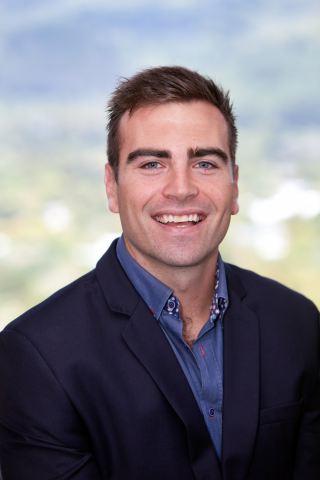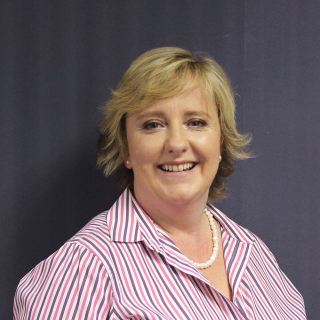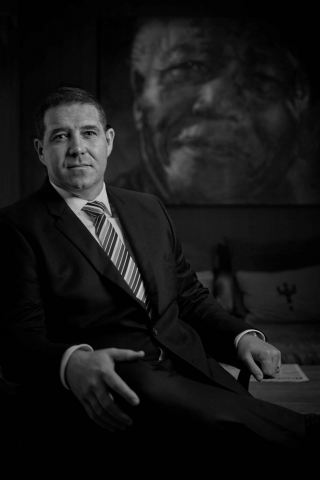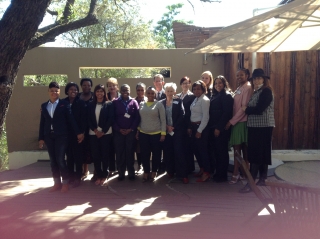Companies are outsourcing their financial operations, here’s why it’s a good idea.
More and more companies are re-thinking their executive teams and outsourcing the financial aspect of their operations. In this modern age of dynamic and complex business markets replete with endless streams of new technology, automation and digitalisation, it is nearly impossible to stay abreast. Mounting operating expenses and inefficient labour in this financial climate are also not helping businesses achieve their envisaged growth. Addressing these challenges from an operational and strategic perspective should not be taken lightly and certainly requires expert input. Considering an outsourced option for the financial operations of your company can be suitably beneficial.
Handre Lourens, business rescue practitioner and consultant at Hobbs Sinclair says, “The question you have to ask yourself is, does your business merit a full-time financial manager or financial director, or are you best placed to outsource this crucial function?” The trend is with outsourcing, and here’s why.
Outsourcing
Outsourcing your financial function and operations brings the advantage of securing a practised professional tailored to the requirements of your business – when you need it, how you need it – without the burden of employing someone full-time at the high cost of a permanent, qualified professional.
Strategic decision-making and up-scaling
An outsourced financial go-to person will assist with business growth by managing your working capital cycle, cash flow, strategic decision-making and mitigation of risks, critical in the scale-up phase of any business.
Monitoring your business
Experts in financial management, with diversified skill-sets and knowledge, will implement systems to mitigate risk and devise management accounts to monitor your business. This will enable better strategic decisions for growing revenue and customer base, cutting costs while increasing productivity and efficiency.
Business plans
Growing your business requires financial backing. If you need bank finance to develop your business, a bank will be expecting an in-depth forecast and detailed business plan. Expert input in this regard is extremely valuable to your application.
Tax planning
If your business is booming and you have secured a sustainable market share, your customers are happy and your bottom line is smiling, the next phase of efficient tax planning is critical. Lourens suggests, “Before the taxman comes knocking on your door, get the experts in to ensure your tax planning is as efficient as possible and, most importantly, to make sure you have made sufficient cash flow provisions.”
The rewards
At the end of an era, when it’s time to sell your business, outsourced tax professionals will efficiently evaluate your business to ensure you receive the capital you deserve for all your hard work, sweat and tears.
Effective working capital management can save your company
By Handre Lourens, Business Rescue Manager at Hobbs Sinclair
Most financially distressed companies have the same things in common: poor working capital controls and the employment of a reactive working capital management strategy rather than a proactive approach.
Improving the company’s working capital through a proactive strategy can be a quick way to get your head above water without increasing sales or cutting cost. For companies in financial distress, that kind of improvement can be the first step to turning the company around. For healthy companies, the surplus cash flow can be reinvested in ways to create value for customers, be invested in a brand or expand your services or product range.
The process of improving working capital can also highlight improvements in operations such as supply-chain management, human resource management, procurement, sales and non-value-added cost.
The first step is to focus on your income and customers and to ask the how, who and when question. You need to understand exactly how your income is generated, who you will collect it from and when you will collect the income. Once you have established the above, you should focus on collecting all income due to you as soon as possible. This can be done by informing debtors of their balance due, following up on debtors to pay their outstanding balances, offering a discount on early settlement of their account or, as a last resort, taking legal action to recover the balance due.
The focus should be to reduce your debtors’ collection days to as few as possible, while at the same time retaining the customer relationship. The second step is to focus on your inventory levels. Having a clear understanding of the demand and supply of your product or service is a key factor. You should establish the optimum amount of inventory to sustain your level of demand while maintaining a small buffer for unforeseen circumstances.
The third step is to focus on your expenditure and, more importantly, the supply chain relationships that the company has. Contacting each supplier will allow you to understand the suppliers’ working capital needs and offer specific payment terms that are beneficial to both parties. This is an ongoing process that does take lot of time.
All this will add to reducing your total number of working capital days. That means the number of days it takes you to buy an inventory, manufacture a product, sell the product to the customer and collect your money. Getting this number of days as low as possible will ensure a healthy bank balance and a bottom-line that will put a smile on your face.
There are, however, some risks involved as well. Too little inventory can disrupt operations. Stretching supplier payment terms can leak back in the form of higher prices, if not negotiated carefully, or unwittingly send a signal of distress to the market. But management who are mindful of such pitfalls can still improve working capital by active management and focusing on the constraints.
Working capital is often under-managed simply because of lack of awareness or attention. There is also the possibility that working capital may not be tracked or published in a way that is transparent and relevant to all stakeholders. That almost always indicates an opportunity to improve. At Hobbs Sinclair, as business rescue practitioners, our first focus is on improving working capital to free up cash flow. This allows us to keep the day-to-day activities running while a long-term strategy can be developed and voted on by creditors in the best long-term interest of the company and all the stakeholders.
In conclusion, working capital is critical to a company’s operations and the financial team within each company needs to take on this responsibility and share it so that it is implemented into every activity within the company.
Appointment of First Female Director to Carrick Board
Craig Featherby, Group CEO of Carrick, is pleased to announce the promotion of Samantha Taylor-Bowen to Group Director of Training and Development for the Carrick Group of companies, where she will sit on the Board of both the South African and International divisions.
[PHOTO] Sam is the first woman to be appointed to the Board, in an industry that is largely dominated by men.
Her role as Group Director of Training & Development will largely be focused on developing, implementing and monitoring training programmes within the organisation; mentoring new and existing Associates in skills development so that they can continue to excel in the industry, and assisting with development of strategic training for the Group. Her leadership in this area is viewed as being vital to the growth of the business and the professional development of the various teams.
Samantha joined Carrick at inception (8th October 2014), and assumed a management role in Cape Town, having spent seven successful years as a senior Financial Adviser and manager for a large international brokerage. In the two years that she has been with Carrick, her track record as a Senior Adviser has been without par, with the highest income production level in the company. While the Sales division will be minus their most lucrative team member as a result of this promotion, the Group will profit from her leadership and direction in the continued maturation of the various business units, and in the organisation’s expansion plans.
She sees her role on the board as an exemplar to others within the company: that it is possible to work your way to the most senior levels through tenacity, skill, knowledge, experience and self-development. Her promotion is evidence of Craig Featherby’s belief that hard work and personal accomplishment should be rewarded with promotion where deserved, and her appointment to the Board of Directors is the first from within the ranks at company level. Taylor-Bowen will report directly to the Group CEO from 1 January 2017.
Carrick Wealth celebrates second year with expansion into Botswana
Cape Town, South Africa – 6 October 2016
Carrick Wealth, the leading offshore investment advisory in Africa, is celebrating its second anniversary, and, in the same week, has opened an office in Gaborone that is fully compliant and regulated with the relevant authorities in Botswana.
The new Gaborone office in the Masa Centre is headed by Andrew Mhere, who is both the Managing Director of Carrick Wealth Botswana and Carrick Wealth Zimbabwe. He is supported by a team of diverse, highly qualified advisers.
With its headquarters in Cape Town and fully functioning offices in Johannesburg, Durban, Mauritius, Zimbabwe and now in Gaborone, Carrick Wealth is changing the face of the offshore financial services industry for high-net-worth clients and those starting out on their wealth journey.
[photo] Craig Featherby, Group Chief Executive Officer, says: “We’ve experienced extraordinary growth in such a short period of time and we are geared to extend the Carrick formula further into new markets in Africa.”
In the 24 months that the Carrick Group of Companies has been in business, its growing team of specialist financial advisers is constantly kept abreast of all the changes regarding regulatory matters in the areas in which the Group operates.
A sophisticated technological platform is in place that keeps live-tracking of all activities connected with the industry, and with the business in particular, giving clients the surety that their investments are completely secure and monitored.
As Carrick Wealth expands its footprint into Africa, it will be offering clients and advisers in each country the opportunity to experience professional, disciplined, innovative solutions and service. The Carrick team is growing, and now has 152 people working for the company – as against seven when Carrick first opened its doors exactly two years ago.
As the company celebrates its second anniversary, it can report that it has an advisory relationship with 787 clients, has over R2,2 million under management and has assisted in 443 QROPS pension transfers out of the United Kingdom into offshore structures.
Carrick Wealth offers clients in South Africa and elsewhere in Africa various financial and estate planning solutions, including the formation of offshore investment structures, portfolio management, private equity and venture capital asset allocations.
MEDIA CONTACT:
Lynn Halliday (Group Marketing Manager)
CARRICK WEALTH
T: +27 (0)21 201 1000
This email address is being protected from spambots. You need JavaScript enabled to view it.
www.carrick-wealth.com
How to Survive the Financial Season Financially Unscathed
Aneesa Razack of FNB talks about the importance of not spending that 13th cheque this holiday season. Here is how a Savings or an Investment Account can save you from starting off the New Year on a bad foot.
Johannesburg, South Africa – You've worked hard and with the festive season around the corner, it’s almost time to enjoy the results of your hard work, especially if you are looking forward to a very welcomed bonus or thirteenth cheque. Before you spend your bonus on holidays, meals out and fun-in-the-sun activities, it is important to take stock and consider your financial situation to prevent starting the New Year off on a bad note.
“Apart from the fact that it’s just a good idea to put aside some of your bonus in an emergency fund to prepare for unforeseen events such as your car or home repairs, or to cover things like school fees and new school uniforms at the start of the year, there are a couple of excellent additional reasons to save a portion of your bonus,” says Aneesa Razack, Head of Strategic Growth at FNB Investment Products.
The South African government wants to help South Africans kick-start a savings routine and is set to launch a tax-free savings incentive in March next year. “Consider setting aside some of your bonus now and be ready to take full advantage of these benefits when this is launched,” says Razack.
All signs indicate that there will most likely be another interest rate hike in 2015. “While this is going to hurt those of us that have debt, the positive side is you also stand to earn more interest on your savings,” says Razack
Save now, not later
Decide up front how much of your bonus you want to save and set it aside in a savings account now, before the festive season starts. “If it’s out of sight, it’s out of mind, and you won’t be tempted to splurge because your bank balance looks so healthy,” explains Razack.
In fact, this is a great tip to apply all year round. Pay yourself first by setting up a direct debit into a savings account at the start of the month. “Say you decide to start your savings habit by giving up your morning coffee on the way to work. That could be around R400 a month. Transfer the money at the beginning of the month before you’ve had a chance to spend it,” continues Razack.
Choose the right savings account for yourself
Generally you have various options to choose from, such as the amount saved, length of time you save for, and amount of notice you need to give to access your money. These factors can influence the amount of interest you earn and the penalties you will pay if you need access sooner than anticipated.
“Think about why you are saving, what your personal banking habits are and choose accordingly. For instance, if you know you’ll need some money soon, you can still set it aside in a short-term savings account, earning interest, so that you don’t spend it. Or, if you are sure you won’t need the money for some months or even years, forfeit immediate access to it in return for a higher interest rate,” says Razack
Get rewarded
Make sure your bank’s rewards programme thanks you, for opening a Savings or Investment Account. The benefit of your bank rewarding you, allows you to make your bonus go even further.
“If you open an FNB Savings or Investment Account, you will increase your reward level points and earn more eBucks. This means you could use your eBucks to purchase discounted gifts this festive season instead of your hard-earned bonus,” notes Razack.
Think about encouraging your friends and family to do the same by giving the gift of actually saving this festive season. “By sharing the savings love, you’ll be doing your bit to encourage a savings culture, and ensure that your friends and family avoid the anxiety and panic of being caught short of cash in the New Year,” concludes Razack.
For more information contact:
Christine Burrows – Corporate Communications Manager Tel: 087 312 8632, Mobile: 078 355 9390, Email: This email address is being protected from spambots. You need JavaScript enabled to view it.
About Company
FNB offers a diverse set of financial products and services including transactional and deposit taking, card acquiring, credit facilities and FNB distribution channels. FNB is structured into clearly demarcated segments. This enables focused business units to develop specialised, innovative technologies and products to meet specific needs. An owner-manager culture directs decision-making in the numerous business units. Autonomy and accountability underscore FNB’s entrepreneurial culture.
FinScope South Africa 2014 shows increase in financial inclusion
Johannesburg - 18 November 2014 - For immediate release
FinScope South Africa 2014 shows increase in financial inclusion
FinMark Trust released the results of its FinScope Consumer South Africa 2014 survey results on 4 November 2014. The FinScope Survey, developed by FinMark Trust, is a research tool to assess financial access in a country and to identify the constraints that prevent financial service providers from reaching the financially under- and unserved people. The FinScope Survey is a nationally representative survey of how individuals source their incomes and how they manage their financial lives. It also provides insight into attitudes and perceptions regarding financial products and services. FinScope South Africa involved a range of stakeholders engaging in a comprehensive consultation process, thereby enriching the survey. To date, FinScope Consumer Surveys have been conducted in 19 countries. The study was based on a nationally representative sample of 3 900 adults who are 16 years or older.
Highlights from the survey Overview of changes in the past ten years
The survey results show an increase in access to infrastructure in 2014 with more adults having access to electricity (82% in 2004 to 94% in 2014), tap water on property (increased from 67% in 2004 to 81% in 2014) and flush toilets (increased from 55% in 2004 to 64% in 2014). An improvement in the standard of living is indicated by the decrease in LSM 1-5 by 4.4 million since 2004 while LSM 6-10 increased by 12.2 million people since 2004. Working and unemployment status of individuals has not changed much over the past ten years with 9 million people (22%) unemployed in 2004, and 9.5 million (23%) still unemployed in 2014. The usage of cellphones has increased to 33 million up from 12 million in 2004. Although there is an increase in the salaried adult population in 2014 (7.2 million in 2004 to 12.4 million in 2014), there is also an increase in dependence on government grants (19% in 2004 to 30% in 2014). 78% of the adult population earned an average personal monthly income of less than R2 000 per month in 2014. However the number of adults with no personal income decreased from 4.1 million in 2013 to 2.7 million in 2014.
Increase in financial inclusion
This year’s survey results indicate an increase in the number of financially included adults from 17.7 million in 2004 to 31.4 million in 2014. Banking increased from 46% in 2004 to 75% in 2014. The overall increase in financial inclusion from 61% to 86% over the past ten years is mainly driven by an increase in banking with more people accessing banking products driven by organic banking growth and SASSA roll out. Although an increase in banking is noted in 2014, the survey shows that the rate of growth in banking has dropped as indicated by bank account product usage remaining static at 75% for both 2013 and 2014.
Transactions
One of the determinants of deepening financial inclusion is the ability of South Africans to use transactional accounts to purchase/make payments for goods and services and electronic fund transfers. The study shows that 27.2 million adults have transactional products, and only 12.9 million adults use EFT or bank card payments at least once a week or monthly. Almost 100% of the banked population have transactional products.
Savings
The study reveals that 7.3 million (20%) adult South Africans have savings products with formal financial institutions in 2014. Whilst the majority of those who are saving possess long-term savings products, it is a concern to note that only 44% of the salaried individuals have long-term savings or retirement products. The contribution towards pension funds has decreased since 2013 from 4.8 million (13%) to 3.9 million (11%) in 2014. This could be the effects from the perception or “talk” that the government will nationalise pension funds and other uncertainty surrounding Government Employees Pension Fund (GEPF).
Credit and borrowing
According to the survey, 13.7 million people have formal credit products in 2014 compared to 13.9 million people with formal credit products in 2013. While secured loans are on the increase, the increase in unsecured loans, at 40%, are mainly used for developmental purposes such as child education, building/extending homes and investing in business. Use of personal loans from a bank is on the increase with 1.6 million people in 2014 compared to 1.2 million in 2013. The study shows that 2.7 million people have a credit card in 2014, a drop from 3.1 million in 2013. 36% of adults have formal credit facilities from non-bank financial institutions which could be in the form of store cards, hire purchase (HP) credit, cellphone contracts and outstanding balance for a service offered. The survey indicates that borrowing from family and friends is on the increase at 3.7 million in 2014 up from 1.8 million in 2013. Of the 56% of the adult population who do not borrow, 32% cited not having a job as a reason for not borrowing, while 31% did not want debt and 20% claim that they cannot afford to borrow. The study reveals that 4.9 million people are showing signs of over-indebtedness, an increase from 4.7 million in 2013. 1.9 million people have applied to have their debt rescheduled and 1.4 million have had a garnishee or emolument order, while 2.2 million people have considered cancelling insurance and investment policies in order to pay back borrowed money.
Insurance – are South Africans over-insured with funeral cover?
While some growth has taken place in the insurance sector with 60% of adults having insurance, a significant increase has occurred with burial society membership at 32% in 2014 up from 20% in 2004, and formal funeral cover doubling at 33% in 2014 up from 15% in 2004. The increase in burial society membership is also evident from 25% in 2013 to 32% in 2014. 40% of adult South Africans do not have any kind of financial product covering risk with lack of affordability cited as the main barrier to uptake. The results show a decrease in formal insurance uptake from 7.8 million in 2013 down to 7.1 million in 2014.
Increase incidence of remitting through supermarkets
The incidence of remittance within South Africa increased from 20% in 2013 to 23% in 2014. According to the survey, 85% of remittances are conducted monthly with an increase by 22% in remitting through a supermarket (an increase from 1.8 million in 2013 to 2.2 million in 2014), while remitting through cellphones has increased by 15% (up from 1.3 million in 2013 to 1.5 million in 2014). Remitting by banks only increased by 4.2% in 2014 (an increase from 2.4 million in 2013 to 2.5 million in 2014).
Mobile money – Do South Africans find technology complicated?
There has been a substantial increase in the usage of cellphones since 2004, with 33 million adults using cellphones in 2014 up from 12 million in 2004. However, despite the increase in usage of cellphones at 90% in 2014, only 24% of the adult population use cellphone banking. Cellphone banking only increased from 8.3 million in 2012 to 8.6 million in 2014. Over one third of adults in South Africa find technology complicated to use for financial activities according to the study.
Are consumers beginning to understand their rights and responsibilities?
Consumer protection and financial education are fundamental to the financial inclusion agenda of South Africa. An environment of poor financial literacy, coupled with a lack of adequate consumer protection, is likely to encourage consumer abuse and inappropriate use of financial services. Users of financial services can easily be victims of unfair treatment by service providers, which is sometimes caused by opaque disclosure or nondisclosure of costs or conditions. However, FinScope 2014 reveals that about 4 million banked adults have switched banks in the past 12 months prior to the survey. Reasons for switching banks could be related to 55% of the adult population claiming to understand the benefits of banking products.
Conclusion
Overall there are 10 million unbanked people in South Africa. The survey showed that while savings is difficult due to low levels of income, most people prefer to save at home possibly due to high banking fees and a lack of confidence in the financial services sector. Although unsecured loans are on the increase, 40% of these are being used for developmental reasons. Funeral cover seems to be the most popular insurance taken by most South Africans. The number of excluded people has dropped to 5.3 million in 2014 from 5.7 million in 2013. 48% of those that are excluded reside mainly rural traditional areas. The challenge for financial institutions is to bring appropriate affordable services to those who are not banked.
FinScope
FinScope was launched in 2002 by FinMark Trust (www.finmark.org.za). Its purpose is to establish credible benchmarks on the use of, and access to, financial services in South Africa. It is designed to highlight opportunities for innovation in products and delivery. The FinScope survey is a comprehensive and national representative study on financial inclusion, looking at how people source their income and manage their financial lives. It has been implemented in 19 countries (11 in SADC, 5 non-SADC Africa and 3 in Asia). The FinScope survey is currently being implemented in 3 more countries in Asia and 4 in the SADC region (1 first cycle and 3 repeat surveys).
Editorial contact: FinMark Trust Nitha Ramnath (Ms) Communication Manager
Tel: 011 315-9197 / 0829214769 Email: This email address is being protected from spambots. You need JavaScript enabled to view it.
About FinMark Trust
FinMark Trust, an independent trust based in Johannesburg, South Africa, was established in 2002, and is funded primarily by UKaid from the Department for International Development (DFID) through its Southern Africa office. FinMark Trust’s purpose is ‘Making financial markets work for the poor, by promoting financial inclusion and regional financial integration’. FinMark Trust does this by conducting research to identify the systemic constraints that prevent financial markets from reaching out to these consumers and by advocating for change on the basis of research findings. Please visit www.finmark.org.za for more information.
Website: www.finmark.org.za
WHERE ARE SOUTH AFRICA’S POTENTIAL WOMEN DIRECTORS?
They are in South African companies and industries right now, although they may not be part of traditional networks and are unlikely to be present at the higher levels of management in the same numbers as men. It is for this reason that BPW SA and the Department of Trade & Industry (the dti) have partnered in an unrivalled “Women on Boards” director development programme to create a pool of female leaders in SA who are excellently trained and are therefore highly sought after by Boards.
Most people today have no knowledge about the makeup of corporate boards, even in the companies they work for. These people would be surprised to learn how little diversity of thought and experience exists in the corporate boardrooms and executive suites of South African businesses. Why should you care about board composition? Boards of directors make decisions that can impact you, your community, and the country. That’s why it’s important that membership on corporate boards be representative of a company's constituents.
Boards of directors choose CEOs. They make decisions about executive compensation, whether to buy, sell, or merge with other companies, where corporate offices close and relocate, and how much priority a company gives to issues other than profits, such as social responsibility.
Our Women on Boards programme will give you the expertise and exposure needed to be part of the right networks. It is an eight-part program — strategically placed over the course of 8 months, due to the complexity of the material — equips women with the knowledge and tools needed to elevate themselves to the C-suite and beyond. In a supportive and highly interactive atmosphere, an impressive roster of top government and corporate experts will guide skilled female executives through a rigorous program of intensive classroom instruction, case studies and simulations. Every element of the program is focused on strengthening and broadening the leadership talents of the participants and delivering positive results for their companies and organizations. They will improve their understanding of the responsibilities of board membership and develop the skills and strategic insight needed to become a more effective director. They will improve their understanding of board governance while heightening their financial literacy and increasing their understanding of relevant legislation. Amongst others, specialist training is also provided by the Johannesburg Stock Exchange (JSE) with regard to corporate governance and understanding of JSE terminology and the Commonwealth Business Council (CBC) (London) who will impart their expertise on personal and reputational risk. The dti will convey their expectations of board members and corporate experts will present, and execute simulations, on media and presentation skills to enhance leadership effectiveness. The programme is certified by the dti.
For more information, please visit our website at www.bpw-jhbsa.co.za .or contact This email address is being protected from spambots. You need JavaScript enabled to view it. or 011 794-4991.
Payday for SA musicians as SAMRO posts record results
On Friday, 21 November 2008, SAMRO held its 47th AGM at its new offices in De Korte Street, Braamfontein, during which the organisations annual financial statements were reviewed and approved.






